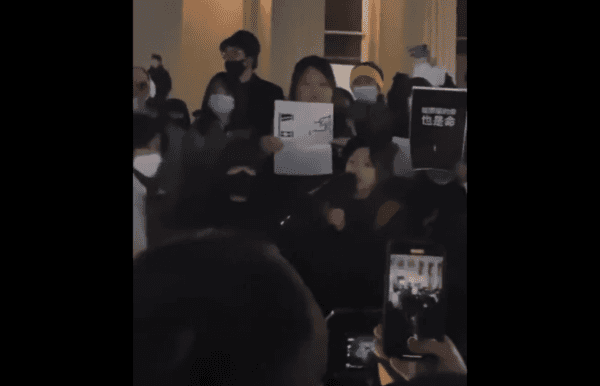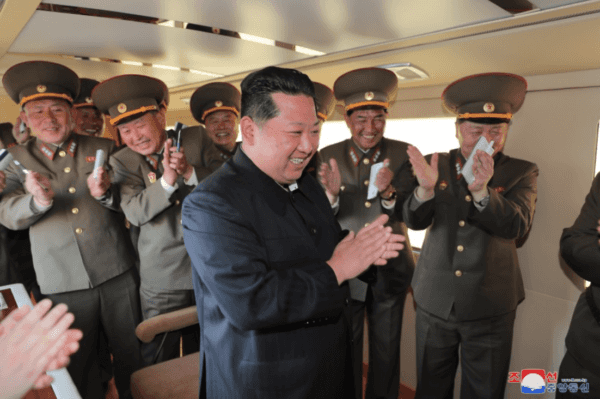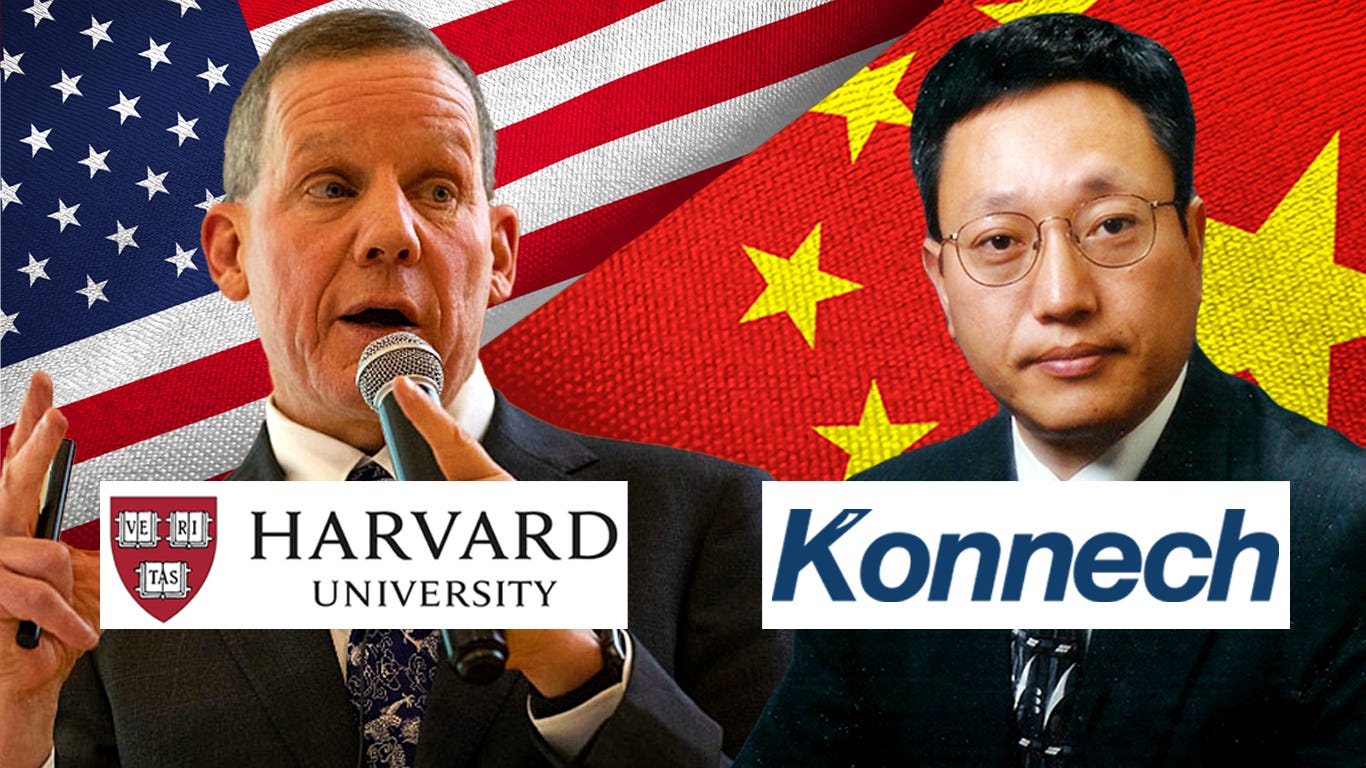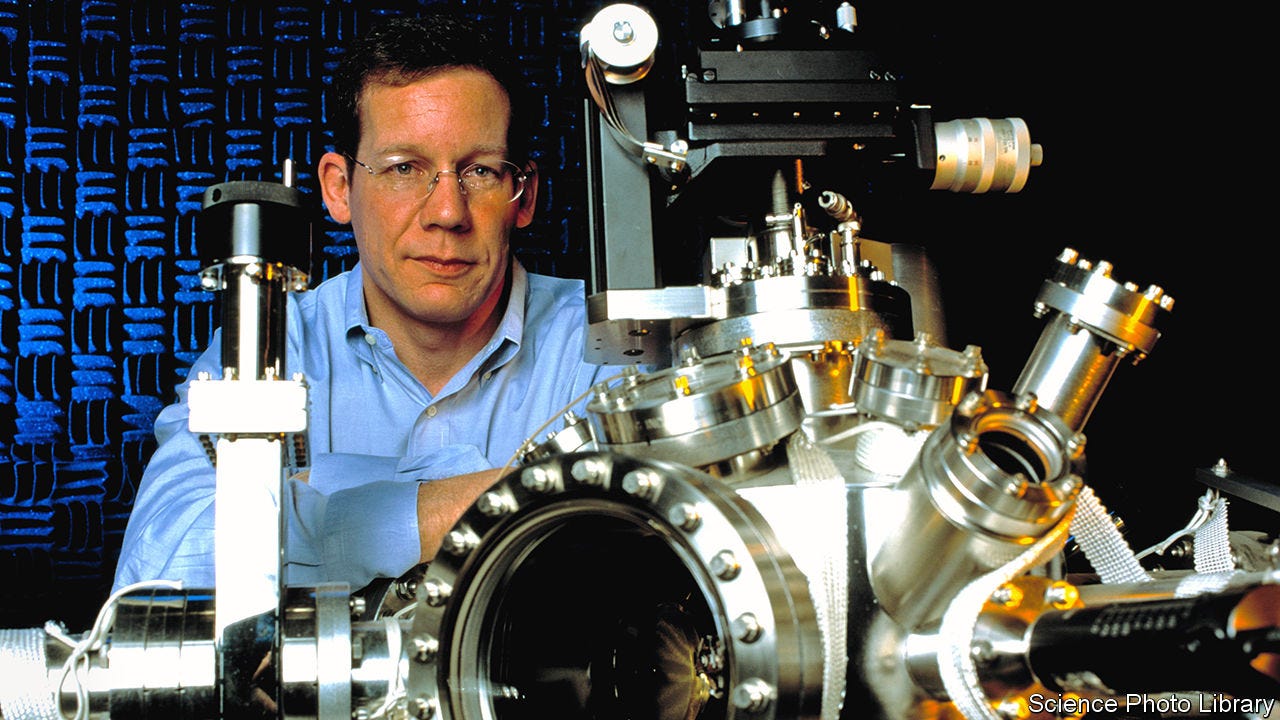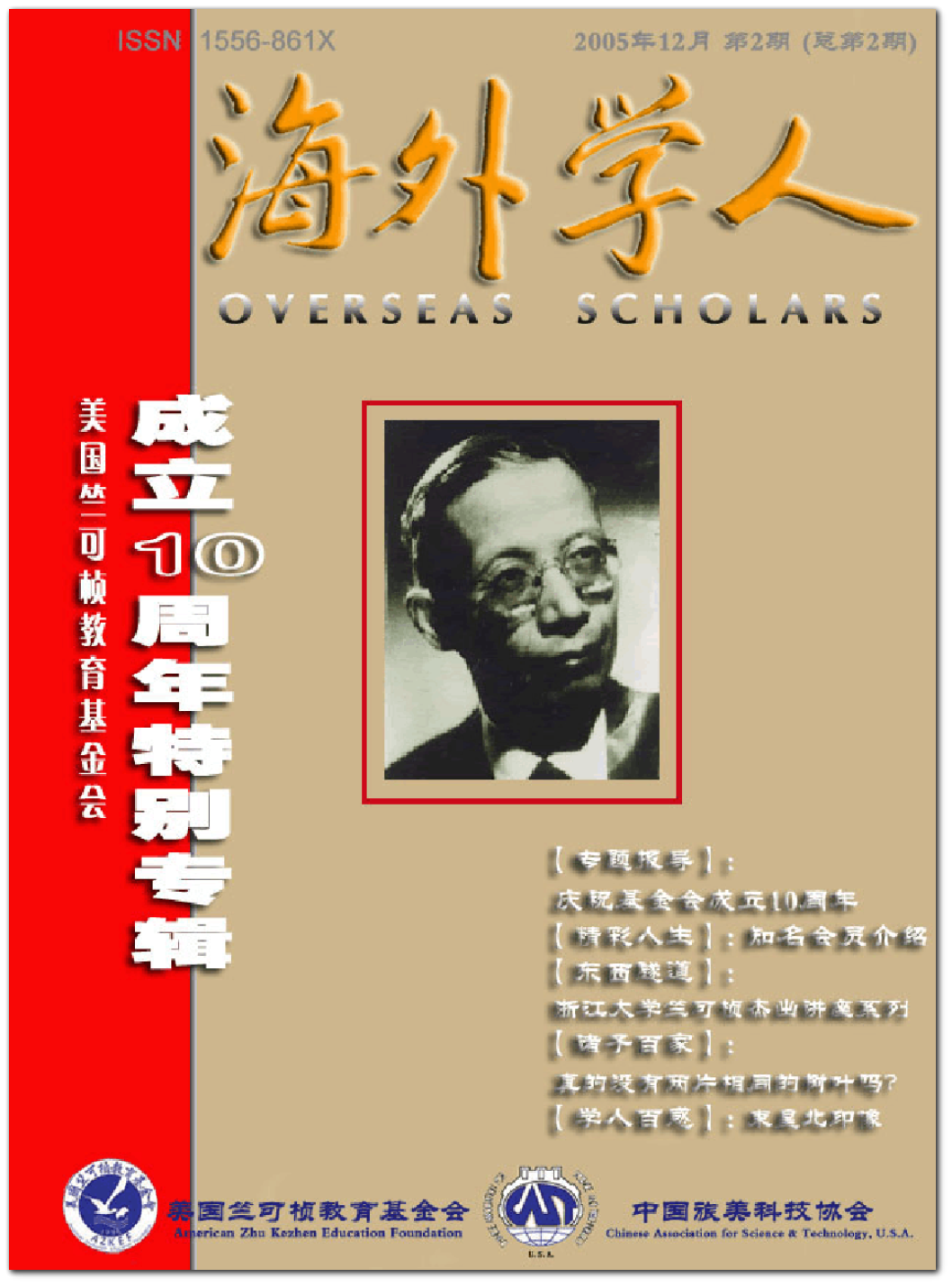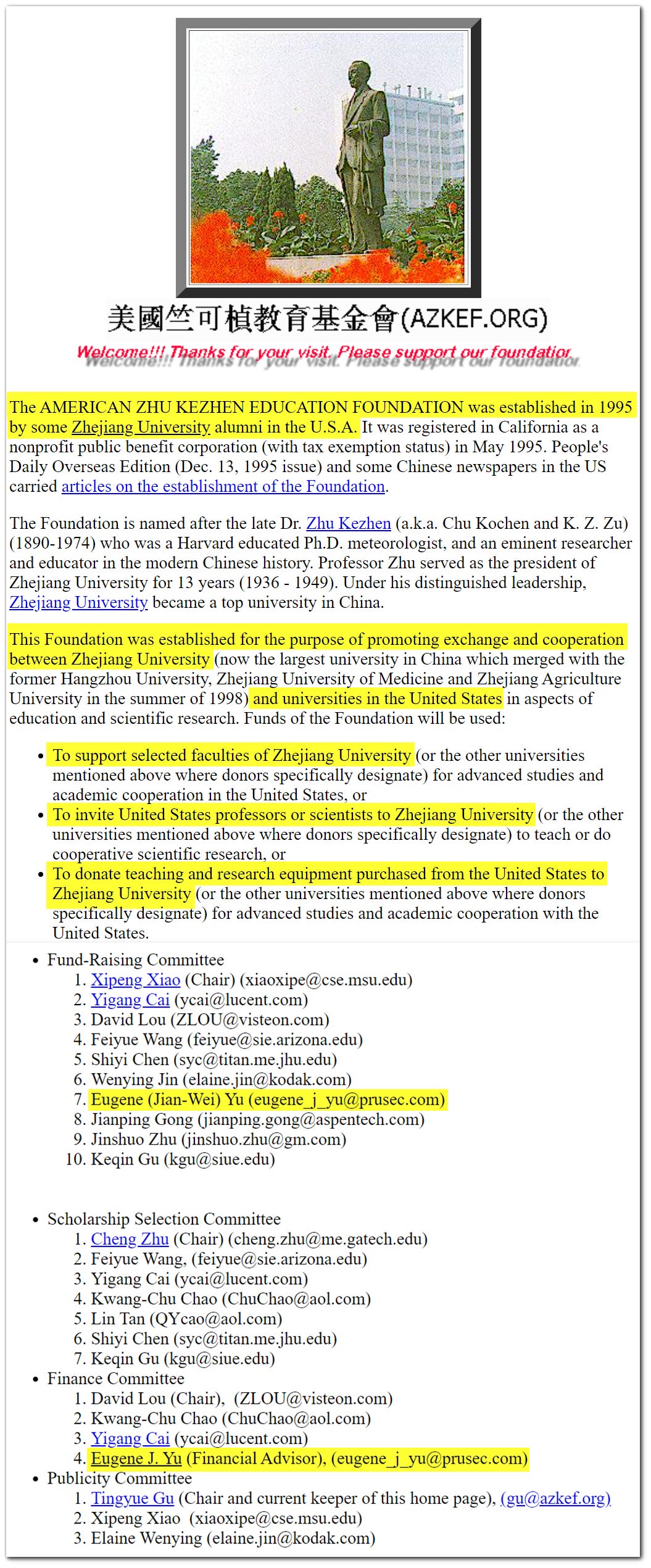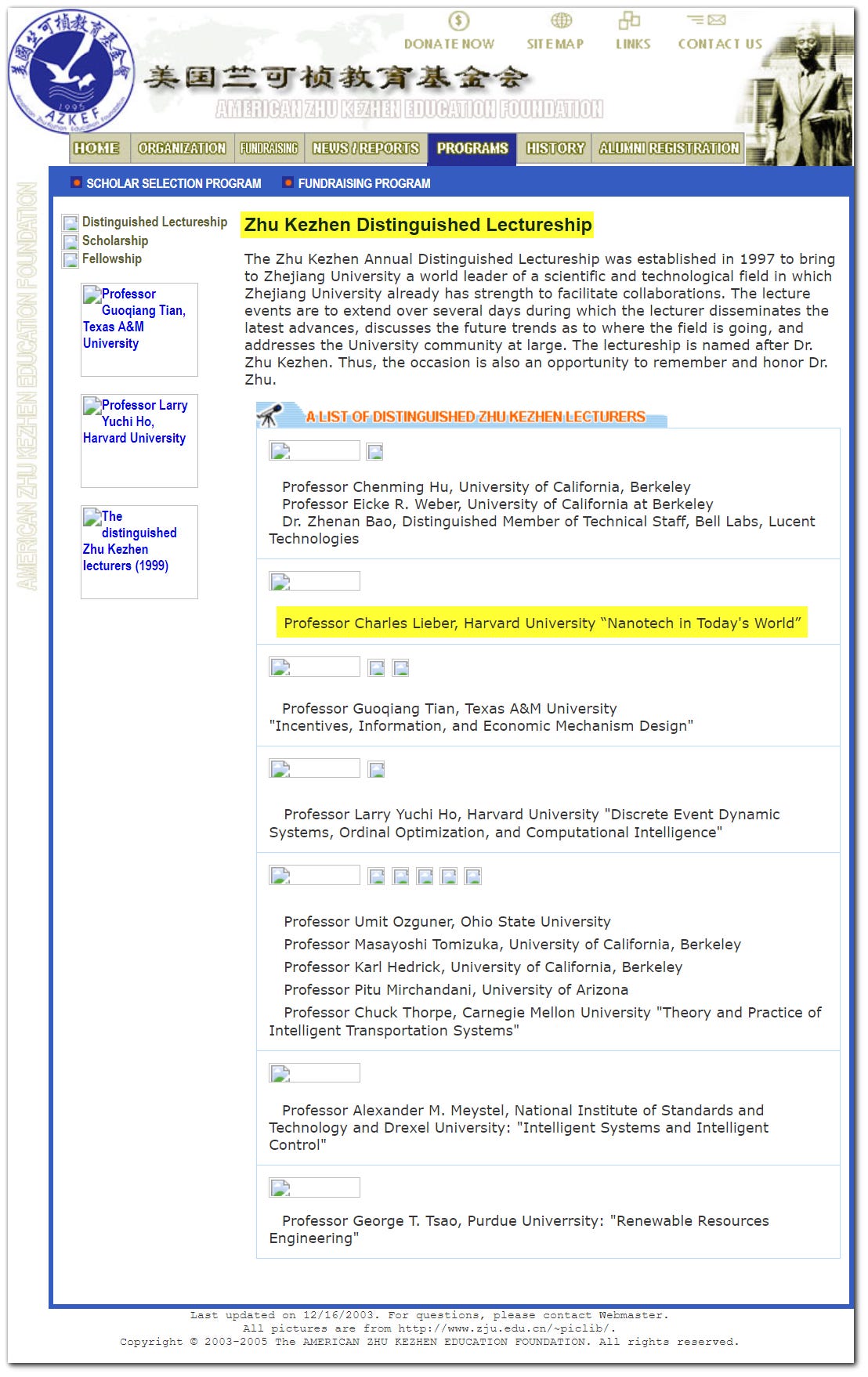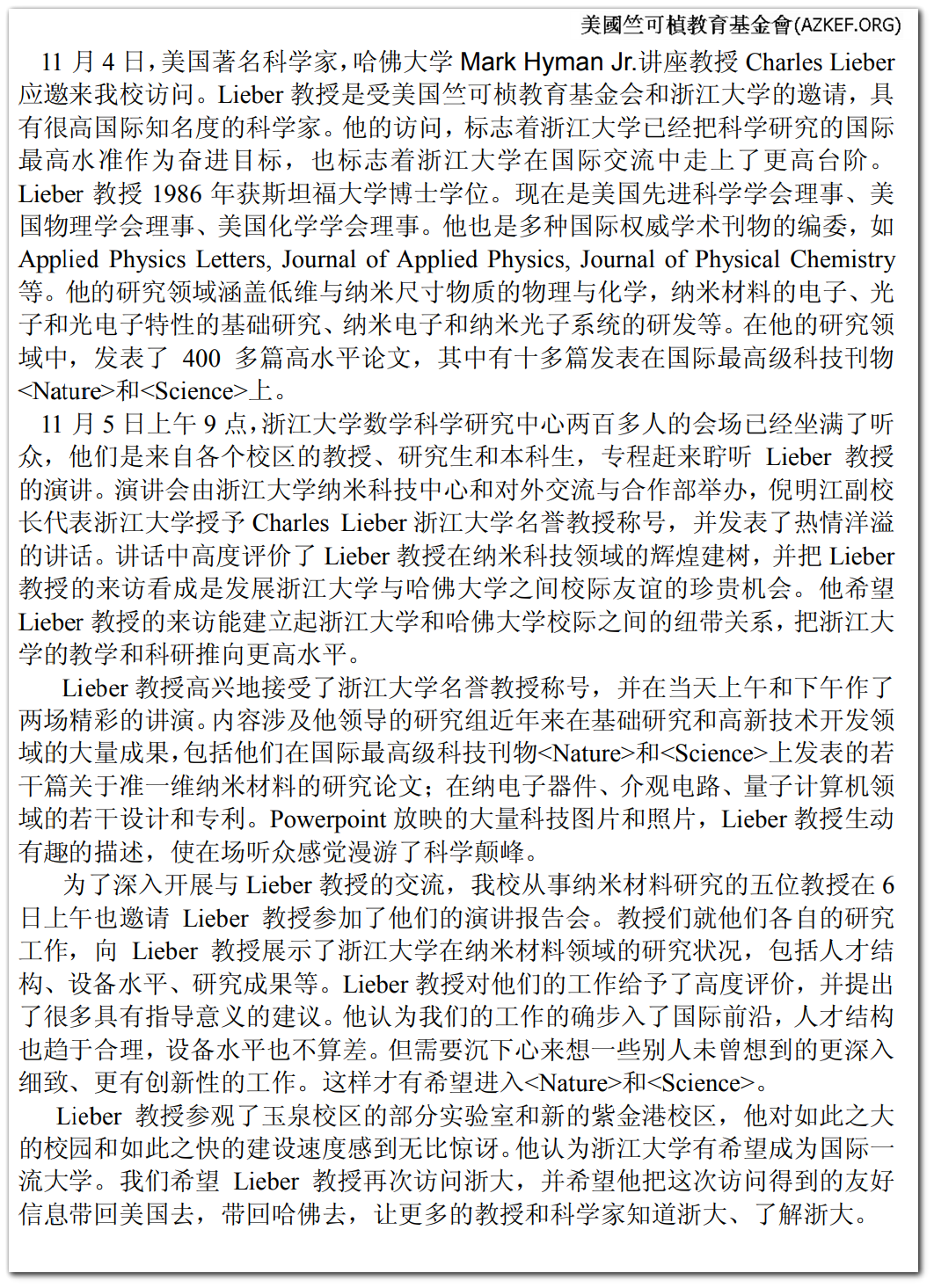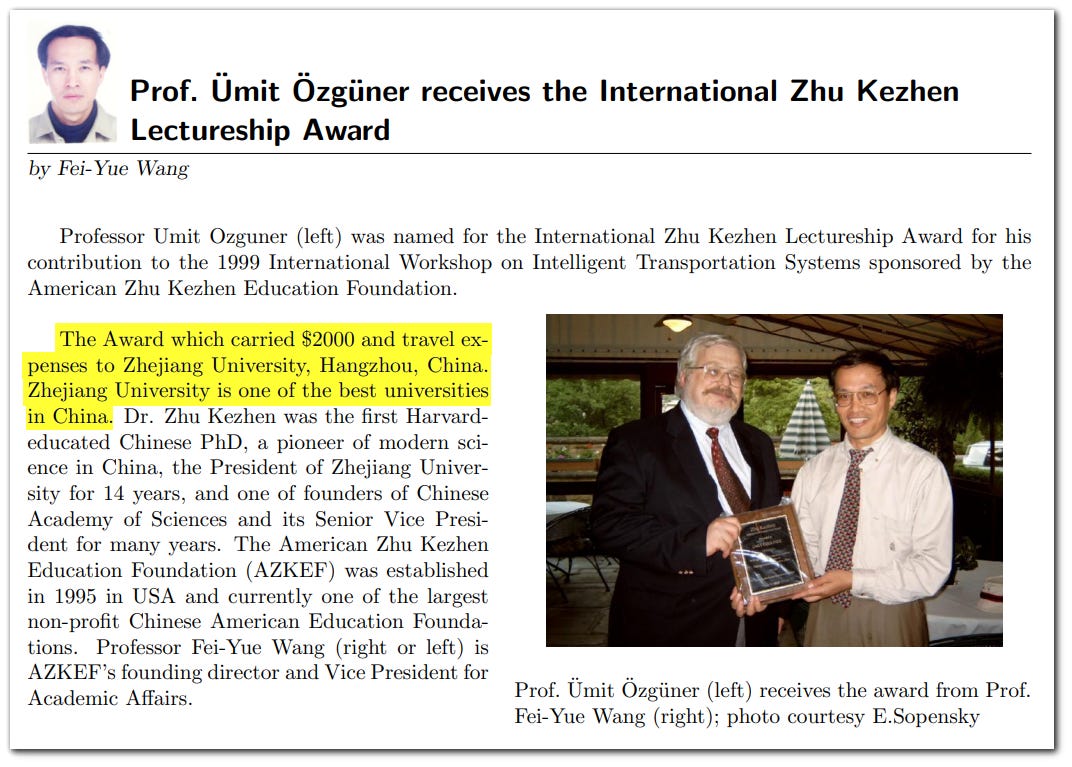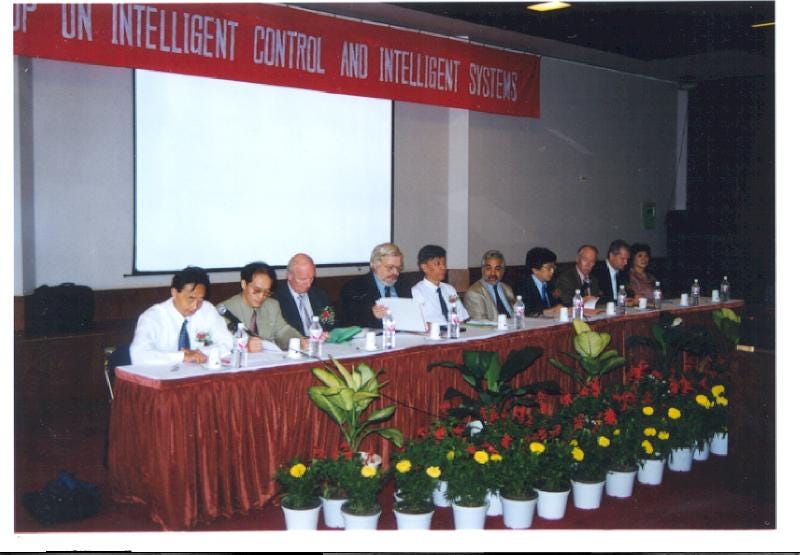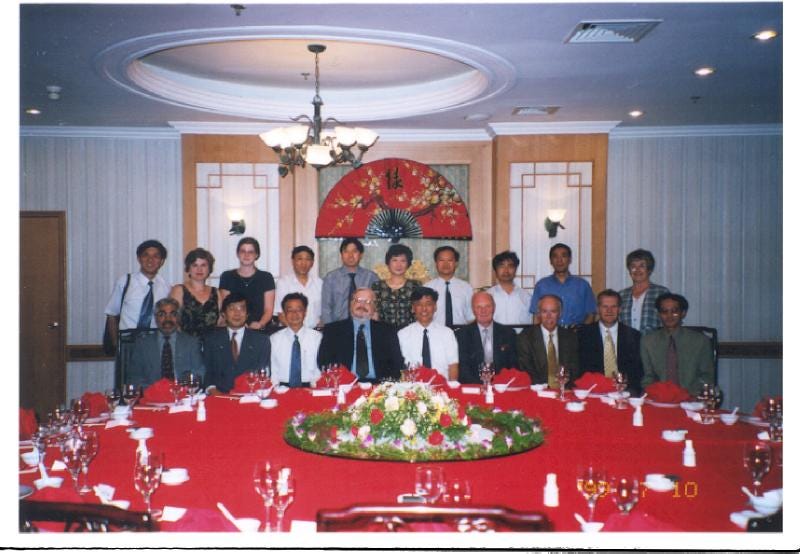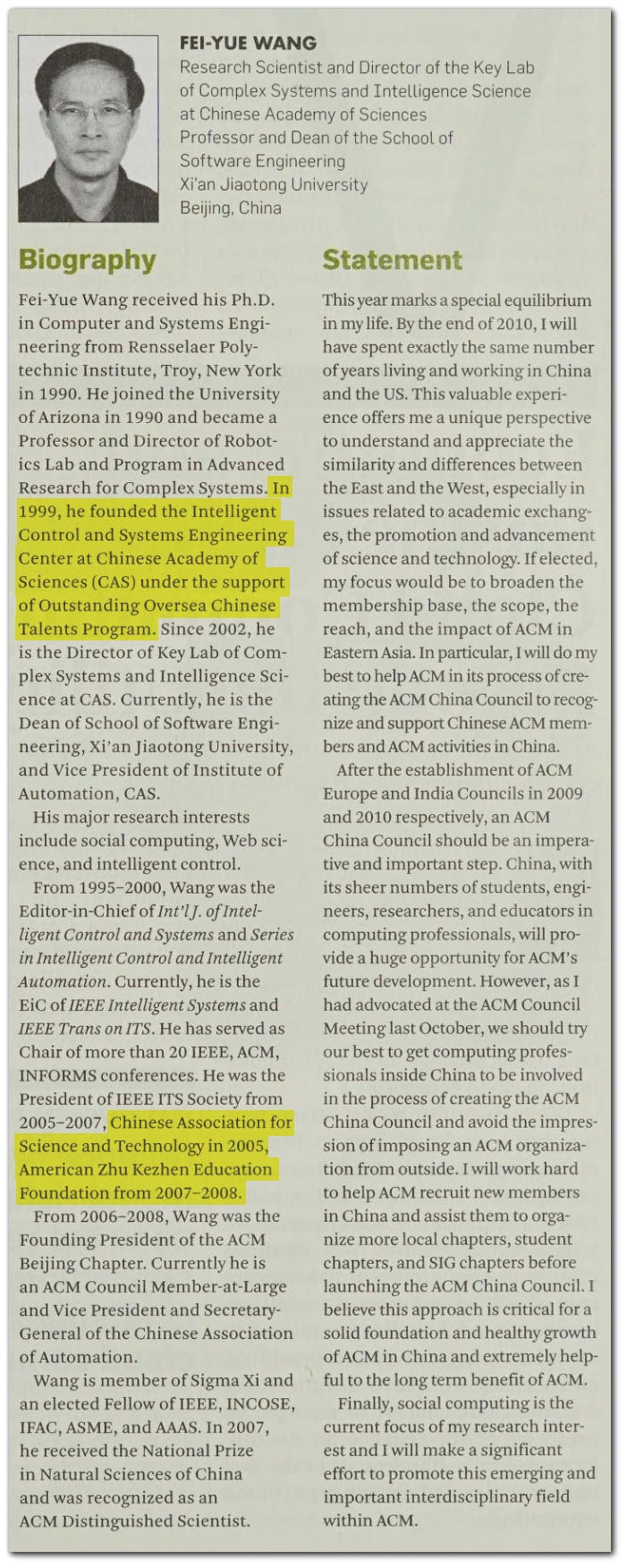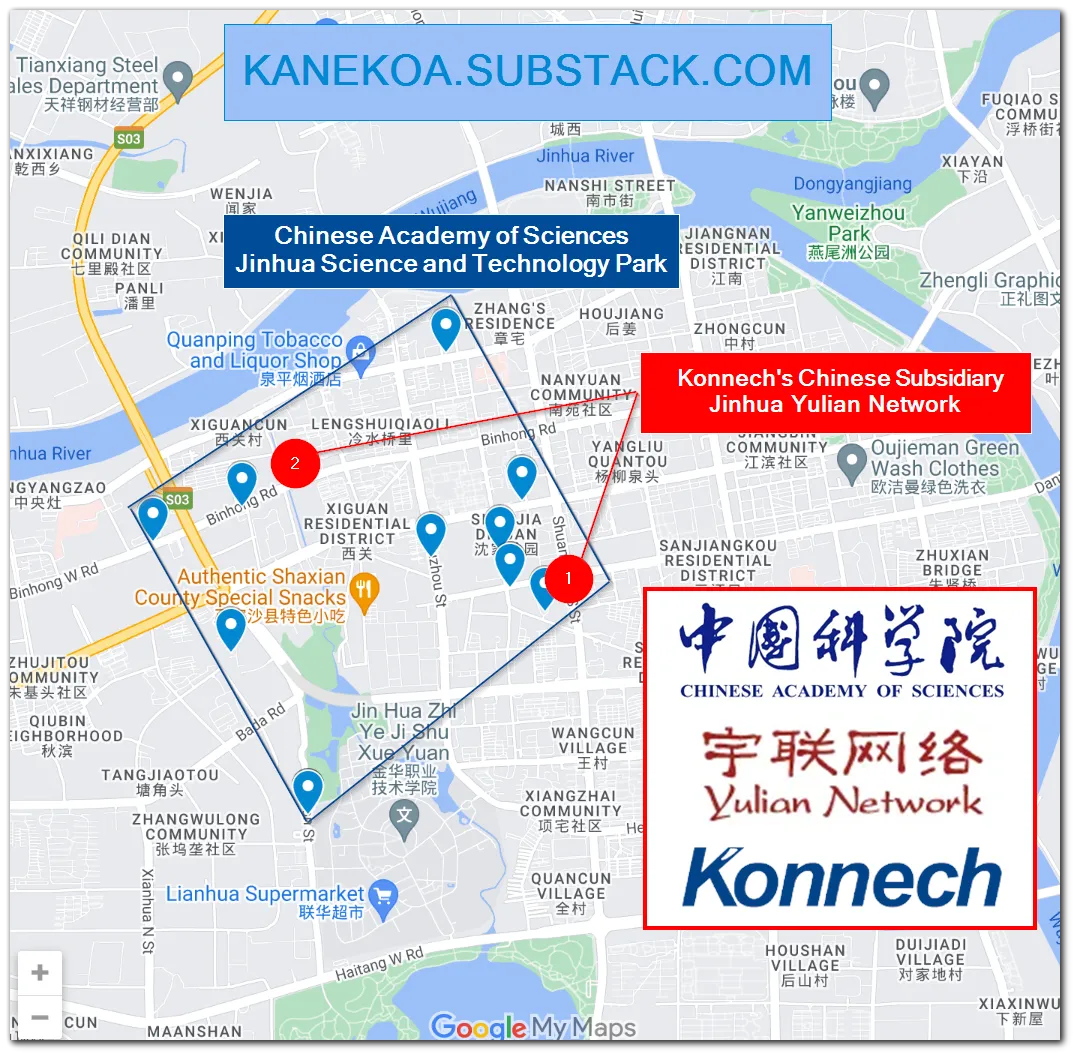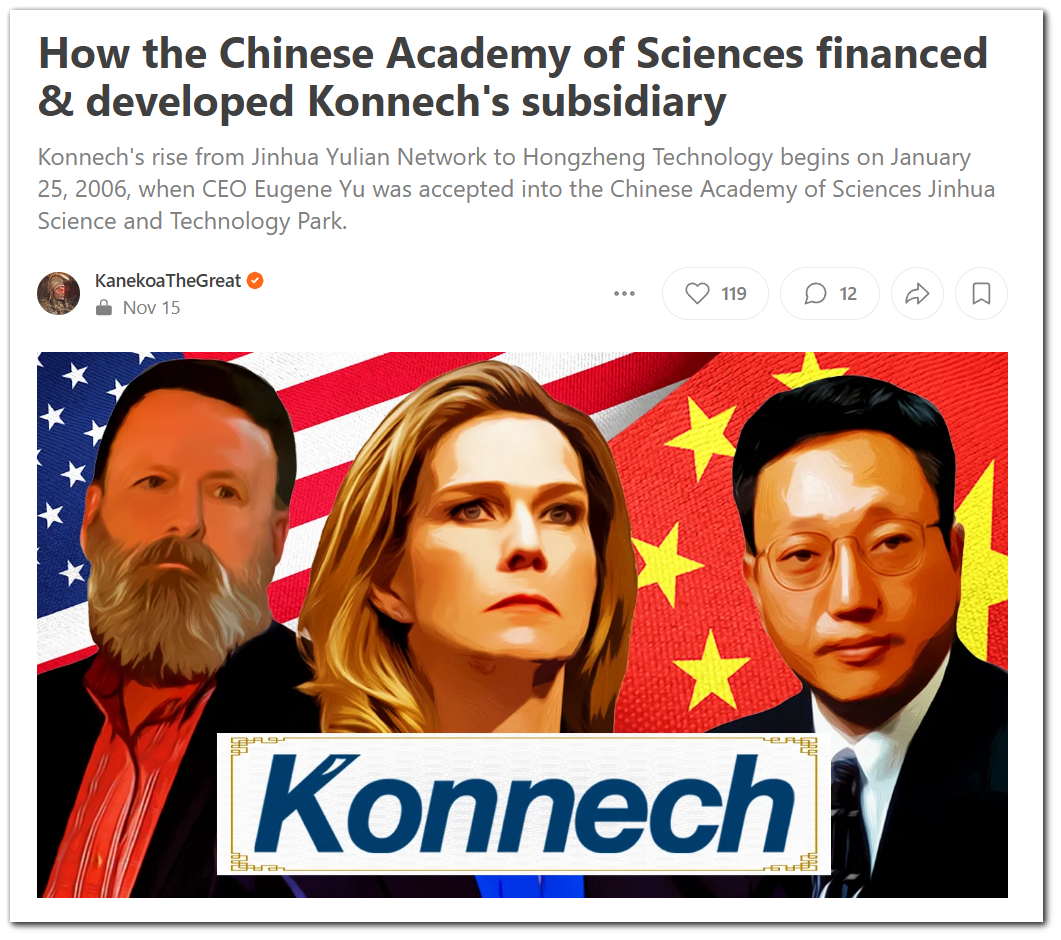| ||||||||||||||||||||||||||||||||||||||||||||||||
November 30, 2022
BREAKING insanity: Oath Keeper founder, FL leader found guilty of seditious conspiracy in Jan 6 case
November 29, 2022
Federal Government deputized Twitter to suppress Hunter Laptop. at about 22:00 minutes.
|
November 23, 2022
November 17, 2022
Konnech CEO linked foundation flew Harvard's Charles Lieber to China
Konnech CEO linked foundation flew Harvard's Charles Lieber to ChinaEugene Yu was an "officer" on the "finance committee" of the American Zhu Kezhen Education Foundation, which flew Harvard Professor Charles Lieber to Zhejiang University in 2002.
On January 28, 2020, U.S. federal authorities arrested Charles Lieber of Harvard University on charges of misleading the Department of Defense and the National Institutes of Health about his connections to China's Thousand Talents Plan. Thousand Talents is the most prominent of more than 200 similar initiatives China uses as part of its overseas program to acquire foreign technology and intellectual property. According to the DOJ, the Wuhan University of Technology (WUT) "paid Lieber $50,000 per month, living expenses of up to $158,000 at a time, and awarded him more than $1.5 million to establish a research lab at WUT." Dr. Lieber, the chair of the Department of Chemistry and Chemical Biology at Harvard University, failed to disclose his role as a 'Strategic Scientist' at Wuhan University of Technology (WUT) and his participation in the Thousand Talents Plan. Eugene Yu, the CEO of U.S. election software company Konnech, was an "officer" on the "finance committee" of the American Zhu Kezhen Education Foundation (AZKEF). In 2002, AZKEF awarded Dr. Lieber the "International Zhu Kezhen Lectureship Award," which included an all-expenses paid trip to Zhejiang University, where the head of Harvard's Chemistry Department gave a speech on "Nanotech in Today's World."
AZKEF Sends Charles Lieber To ChinaKonnech CEO Eugene Yu was featured in a Chinese magazine entitled "Overseas Scholars" written by AZKEF and the China Association for Science and Technology in the United States (CAST-USA). In the magazine, CAST-USA refers to Eugene Yu by his Chinese name Yu Jianwei (于建伟), and says that he is an "officer" on the "finance committee" of the American Zhu Kezhen Education Foundation. I discovered Dr. Lieber's visit to Zhejiang University in the archives of AZKEF's website.
AZKEF's mission is "to promote exchange and cooperation between Zhejiang University and universities in the United States" and "to invite United States professors or scientists to Zhejiang University." According to AZKEF, Dr. Lieber's visit "produced a lot of excitement" and other universities such as "Fudan University, University of Science and Technology of China, Tshinghua University, and the Chinese Academy of Sciences" took the opportunity to invite Lieber to visit their campuses:
At a Senate Judiciary Committee hearing, Bill Priestap, the former Assistant Director of the FBI's Counterintelligence Division, stated that China's talent recruitment plans are effectively "brain gain programs" that "encourage theft of intellectual property from U.S. institutions." Priestap continued, "For example, China's talent recruitment plans, such as the Thousand Talents Program, offer competitive salaries, state-of-the-art research facilities, and honorific titles, luring both Chinese overseas talent and foreign experts alike to bring their knowledge and experience to China, even if that means stealing proprietary information or violating export controls to do so."
AZKEF's letter above translated into English:
AZKEF's Founding Director, Dr. Fei-Yue WangDr. Fei-Yue Wang graduated from Zhejiang University in 1984. He is a founding Board Director of AZKEF and a former President of the organization. Dr. Wang received his Ph.D. from the Rensselaer Polytechnic Institute before becoming a Professor and the Director of the Robotics Laboratory at the University of Arizona in 1990. In 1999, he founded the Intelligent Control and Systems Engineering Center at the Chinese Academy of Sciences (CAS), where he is currently the Chief Scientist. "He founded the Sino-US Joint R&D Center for Intelligent Control Systems to bridge the joint research efforts among the University of Arizona, the Chinese Academy of Sciences, and Chinese Kelon Corporation," according to Dr. Wang's AZKEF biography. He was awarded an "Excellent Performance Award" from the "Chinese Academy of Sciences Hundred Talents Plan" in 2002 and was the President of the Chinese Association for Science and Technology in 2005.
Chinese Association for Science and Technology (CAST)CAST is a transnational organization and constituent member of the Chinese People's Political Consultative Conference (CPPCC) whose stated mission is to "maintain close ties with millions of Chinese scientists, engineers and other people working in the fields of science and technology," and to operate as "the bridge linking Chinese science and technology community with the Communist Party of China and the Chinese government," according to organization's archived "About Us" webpage. In 2003, CAST established the Help Our Motherland through Elite Intellectual Resources from Overseas Program (HOME) in concert with the Organization Department of the Chinese Communist Party to recruit overseas science and technology talent to transfer technology and intellectual property back to China. The CPPCC's role in channeling overseas science and technology knowledge toward China's development has grown since a 2013 directive from General Secretary Xi Jinping to focus on incentivizing overseas Chinese to contribute their technical skills and expertise to China's national rejuvenation. By 2020, a United States congressional body warned that the Chinese government has built a "sprawling ecosystem of structures, programs, and incentives to coopt and exploit overseas experts for the science and technology they acquire abroad." "Chinese leaders have long viewed advanced science and technology (S&T) as key to China's comprehensive national power and sought to acquire it through licit and illicit means from developed countries like the United States," the US-China Economic and Security Review Commission (USCC) said in the report. "This ecosystem sponsors promising Chinese students and scholars at U.S. and other foreign universities, incentivizes their return to China for the long term, and employs transnational organizations to channel S&T know-how from those remaining abroad back to mainland China." The U.S. Senate report continues:
China's Military-Civil Fusion StrategyCAST, which "maintains at least 12 chapters and about 8,000 members located across the United States," is a part of China's military-civil fusion strategy, a plan which intentionally blurs the lines between public and private enterprises, to ensure that the nation's military, espionage, and commercial interests are intertwined. "CAST contributes to China's overseas technology acquisition efforts chiefly through the "Haizhi Plan," a sprawling program that conducts a plethora of outreach initiatives to overseas Chinese students and scholars," the report continues. "For the first ten years of its existence, the Haizhi Plan engaged in many of the activities typically associated with talent programs, such as sponsoring short-term trips to China, maintaining lists of prominent overseas Chinese students and scholars regarded as experts in their scientific field, organizing recruitment events, sponsoring startup competitions, offering incentives to entrepreneurs to return to China, and enabling scientific cooperation projects between overseas and domestic institutions." Konnech CEO Eugene Yu was an "officer" on the "finance committee" of a Chinese foundation in the United States tasked with flying professors like Charles Lieber to China and this discovery was made on a CAST-USA magazine entitled "Overseas Scholars." AZKEF keeps a list of talented overseas Chinese students, offers awards for prominent scientists to fly to China, and focuses on bridging Zhejiang University with universities in the United States. Chinese Academy of Sciences (CAS)On January 25, 2006, Konnech CEO Eugene Yu's subsidiary Jinhua Yulian Network was accepted into the Chinese Academy of Sciences Jinhua Science and Technology Park ("the Park") in Zhejiang, China. Dr. Fei Yue-Wang, a member of CAS's Hundred Talents Program, the President of the CAST, and the Founder and Chief Scientist of a CAS Robotics Laboratory, may have helped fellow AZKEF member Eugene Yu get accepted into the Park's incubator program. Jinhua Yulian Network was located 500 meters away from the Jinhua Government Building in the first science and technology park jointly built by CAS and a prefecture-level government. The Chinese government financed, developed, and ultimately controlled Jinhua Yulian Network since Konnech's subsidiary was accepted into the Park. Specifically, Eugene Yu is contractually obligated to follow the laws of the People's Republic of China and the rules of the Park. In exchange, the Chinese government has provided Eugene Yu with money, software, and the Chinese companies associated with him have been extremely successful. For example, Eugene Yu registered "hongzhengtech.cn" for Jinhua Hongzheng Technology to admin@konnech.com on July 31, 2015. As a result, Konnech had core control over Jinhua Hongzheng Technology's website—a company partnered with Huawei, China Telecom, and China Unicom that operates in more than 20 provinces across China as the premier voting technology provider for the National People's Congress. A U.S. congressional report found that CAS has "connections to Chinese military, nuclear, and cyberespionage programs." CAS & CAS-owned companies develop hypersonic spaceplanes, robotic submarines, and missile technologies for the Chinese military. CAS also helped Konnech's Chinese subsidiary develop Konnech's U.S. election software.
To turn this passion into a career, I need your support: subscribers who sign up for $5 a month enable me to work full-time as an independent journalist and empower us to reach an ever-expanding audience. For the price of a cup of coffee, you become my largest benefactor, and my work continues to be accountable only to truth, freedom, and the American people. You're currently a free subscriber to Kanekoa News. For the full experience, upgrade your subscription. © 2022 KanekoaTheGreat |


